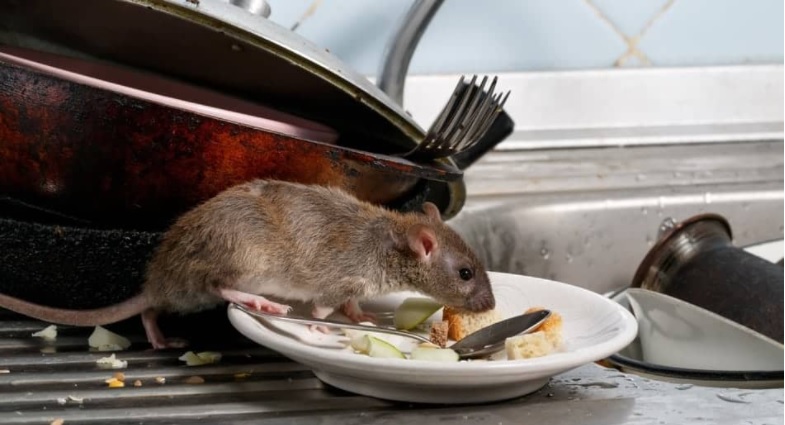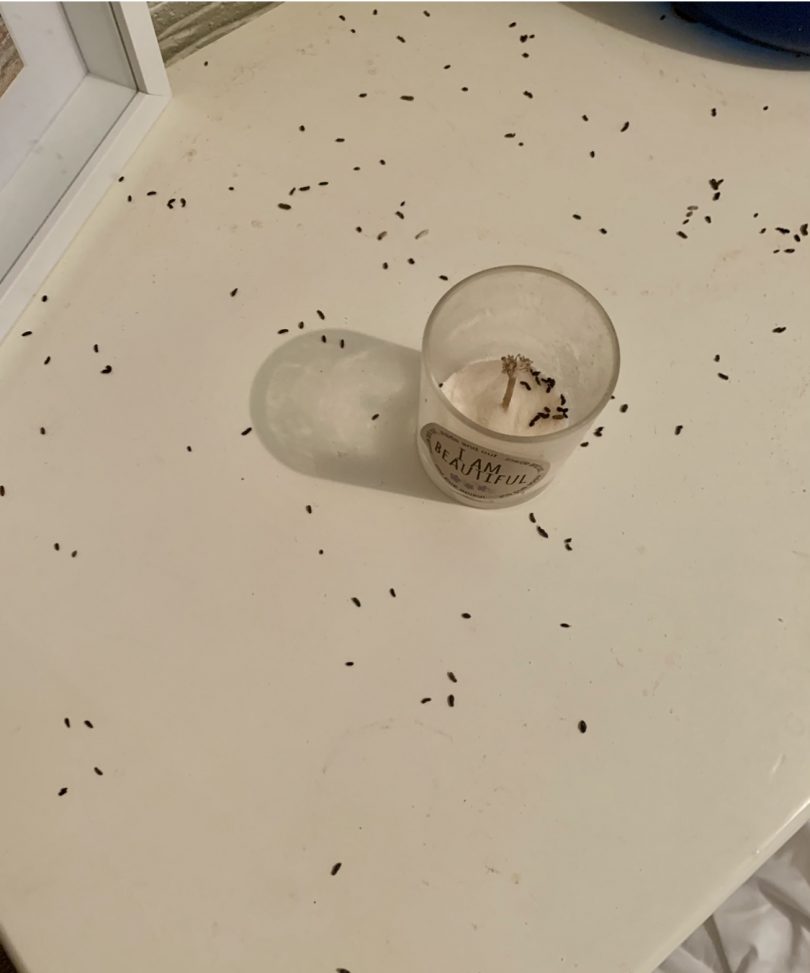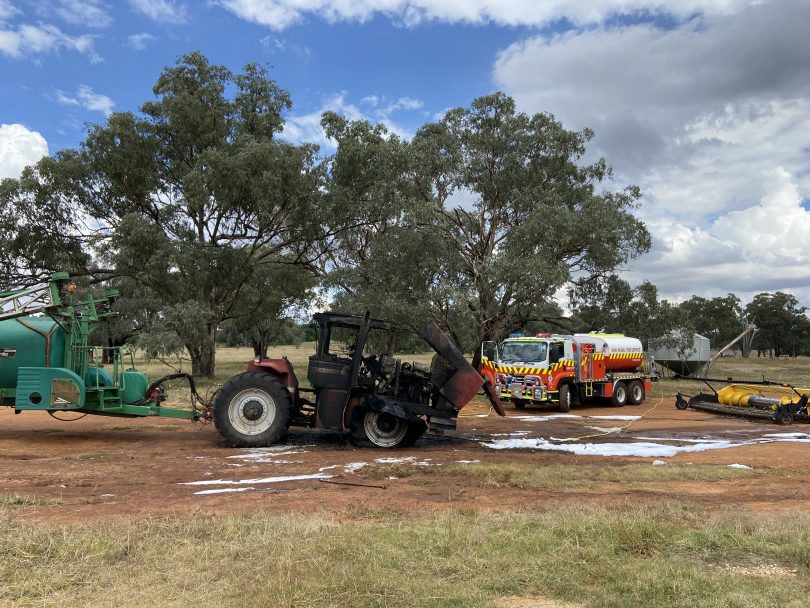
There’s no telling where the rodents will turn up next as the plague of mice and rats continues to hammer down on regional NSW. Photo: Supplied.
“The smell is horrific. You can pick up all the mice you see but there is always more. I did 38 loads of washing in three days. My house is pretty much packed up in boxes,” Lisa Minogue, Farmer, Barmedman
Barmedman sits on the fringes of the South West Slopes. It’s as west as the slopes go and Lisa Minogue isn’t exaggerating.
“I was sleeping at night and I’m sure I felt something running up my arm,” said a farmer’s wife from Thuddungra.
A week later the wife and her husband disposed of 10 mouse carcasses – all caught under their bed in one night.
Another wakes to discover fresh mouse droppings across her pillow. There have been rats discovered in car glove boxes. Cats and dogs are also delivering the critters to people’s doorsteps.
A mouse ran up the leg of one person as she was driving to town and she abandoned ship leaving all doors open.
Someone’s chest freezer mysteriously died. A stove blew up. They’re flying out of cupboards. Leaping onto laptops. Biting toes.

The unpleasant scene that greeted homeowners who’d returned after a few days away. Photo: Supplied.
And a farmer’s tractor, that had been sitting in the middle of a paddock, burst into flames. Today it’s a black shell – a monument to the frenzied wire-eating nature of the mouse and its best friend the rat. The same farmer left his ute out overnight only to discover it wouldn’t start … again, hungry rodents.
For farmers, the problem is magnified as winter crops are churned into the ground only to have the seed triumphantly brought back to the surface and chomped.
It’s not just the inconvenience and the cost, it’s the stench.
If people recall anything about mouse plagues it’s the smell of mice – dead and alive – in buildings, vehicles and clothes.
People are at their wit’s end.
The insidious nature of the mouse and its band of mates is no match for the bait-bare shelves of supermarkets and hardware stores as many turn to homemade devices to keep numbers at bay.
NSW Farmers and the CWA joined forces in calling for the NSW Government to implement a mouse plague financial support package, providing up to $25,000 per farm business to assist with baiting costs.
The two organisations held a parliamentary briefing to outline the significant financial and health impacts of the relentless mouse plague that continues to spread across the state. Two days later the NSW Government responded by allocating $50 million in funding.
NSW Farmers Grains Committee Chair Matthew Madden said farmers and rural communities were still in the midst of combating the plague that is continuing to impact the northern and central west regions and rapidly spreading and growing through the south.
Mr Madden said loss of stored grain and fodder is having the greatest financial impact, with a third of respondents to a NSW Farmer survey estimating losses between $50,000 and $150,000.
“The survey results also showed that the costs of baiting so far, for some, exceeds $150,000 with 30 per cent having spent between $20,000 and $150,000 already,” he said.
More than 80 per cent of respondents also reported damage to agricultural machinery and infrastructure with around a third saying the damage bill was between $20,000 and $150,000, Mr Madden said.
Availability of mouse bait is also an escalating issue with 75 per cent of farmers reporting an inability to access bait when needed.
“The government can have a role to play in supporting the establishment of and streamlining approvals for regional grain treatment stations, allowing farmers to treat their own grain, reducing the cost and biosecurity risks associated with baiting,” Mr Madden added.
CWA CEO Danica Leys said the social and mental health impacts on farmers, their families and rural communities are also rising sharply.
“A staggering 97 per cent of the survey respondents felt the influx of mice is affecting their stress levels making farm business decisions,” Mrs Leys said.
“People are having issues with sleeping, which we all know as a significant impact on mental and physical health.
“There are plenty of reports of people being bitten and mice also making their way into rain water tanks causing contamination of domestic water storages with different bacteria such as salmonella.
“And it’s not just farm businesses. Regional hotels, retail and food businesses, bakeries, supermarkets, childcare centres and aged care homes have also felt the impact of this mouse plague.
“All of these financial and health impacts follow unprecedented drought, catastrophic bushfires and most recently floods across large regions. It is time for the state government to act.”

A solitary tractor connected to a spray rig, spontaneously burst into flames a day after it had been thoroughly cleaned. The only explanation was damage from rats and mice. Photo: Supplied.







